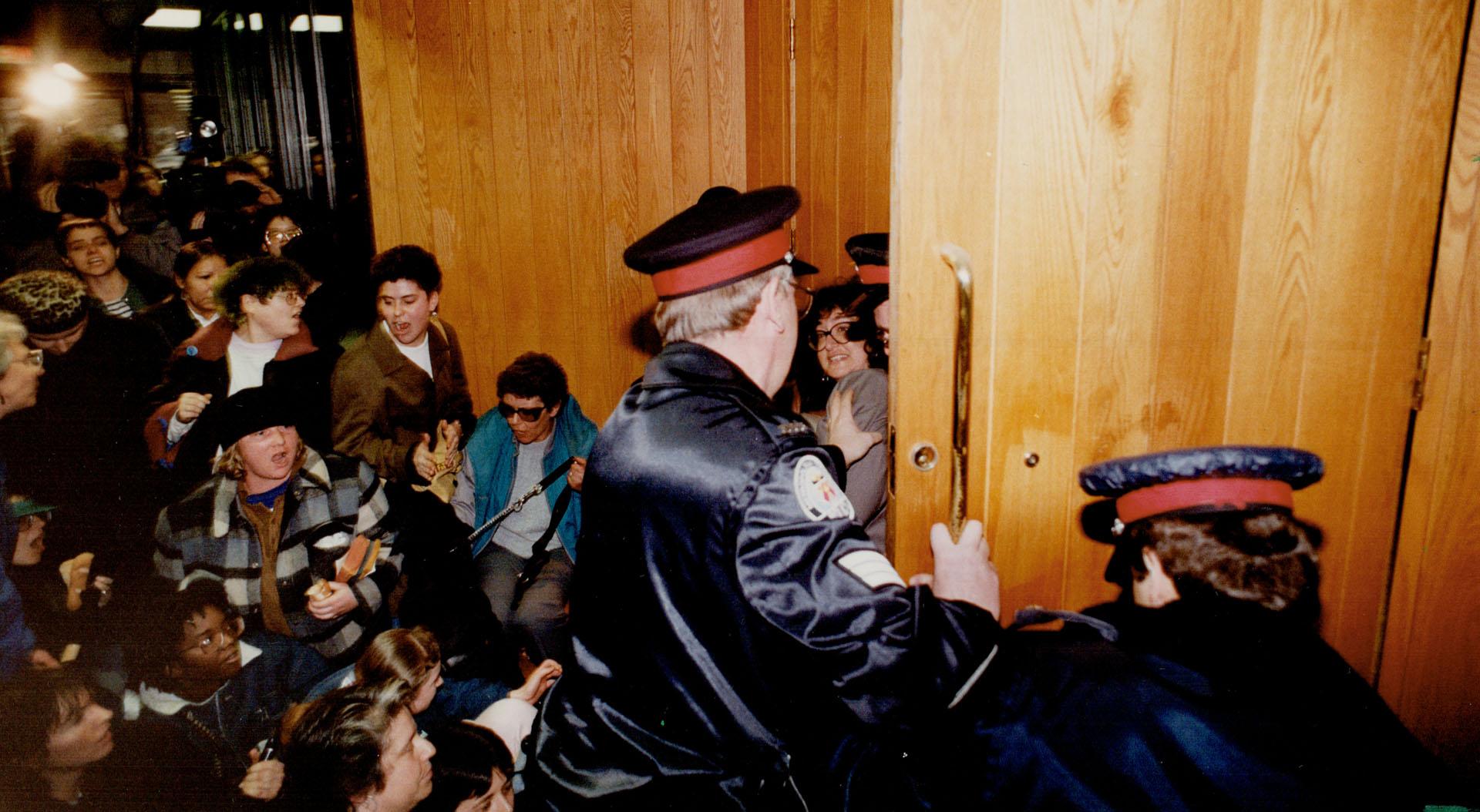Health Canada funds the first, one-time-only Violence Against Women Survey conducted by Statistics Canada. It reveals that 12% of the women surveyed had been assaulted by a spousal partner in the preceding five years. Though the survey was never repeated, similar questions were asked in the 1999 General Social Survey.
Measuring Violence Against Women
Statistics Canada
Kim Campbell won the leadership of the Progressive Conservative party and became Canada’s prime minister in June 1993. Her term would be brief. Shortly after taking office, she called an election and was defeated in the largest electoral loss by a federal government. Campbell lost her own seat and resigned as party leader; she held office for 132 days.
In response to the Montreal Massacre, a group of pro-feminist men in London, Ontario launch the White Ribbon Campaign to raise awareness about the prevalence of male violence against women. Now active in over 60 nations around the globe including Canada, UK, Pakistan, Italy and Australia, White Ribbon is the world’s largest movement of men and boys working to end violence against women and girls, promote gender equity, healthy relationships and a new vision of masculinity.

In February 1990, the federal budget makes deep cuts to the Secretary of State women’s programs, the federal department that finances centres providing esssential services to women such as rape crisis centres and battered women shelters. The cuts result in 80 women’s centres across Canada losing their core funding and becoming at risk of shutting down. Protests against the cuts emerge across Canada. In Toronto, about 70 women stage a sit-in outside the Secretary of State’s office on Spadina Ave.


Women’s centres across Canada begin to close as funding dries up
Cameron, Stevie. Women’s centres across Canada begin to close as funding dries up. The Globe and Mail, pg A9. Apr. 7, 1990.
Interval House is grateful for the Toronto Star’s licensing support for the imagery and articles in this timeline. Further reproduction is prohibited without the Toronto Star’s permission.
Contact: syndicate@torstar.com
Credits/Citation
Photograph: Bock, Tony. About 70 women stage a sit-in outside the Secretary of State’s office on Spadina Ave. yesterday as part of a Canada-wide protest. The groups are angered by federal funding cuts to women’s organizations. Police in Metro made no arrests but had to force the doors shut so the office could be closed. Toronto Star, pg A1. April 2, 1990.

On December 6, 1989, 14 women die at the hands of anti-feminist gunman Marc Lepine at École Polytechnique de Montréal in Montreal, Quebec and another ten women and four men were injured. The massacre remained the deadliest mass shooting in Canada until the 2020 Nova Scotia attacks.
Credits/Citation
Photo: In Memory of The Victims of the Montreal Polytechnique Massacre by Sergey Mkrtchyan, 6 December 2014
Sergey Mkrtchyan, CC BY-SA 2.0, via Wikimedia Commons
